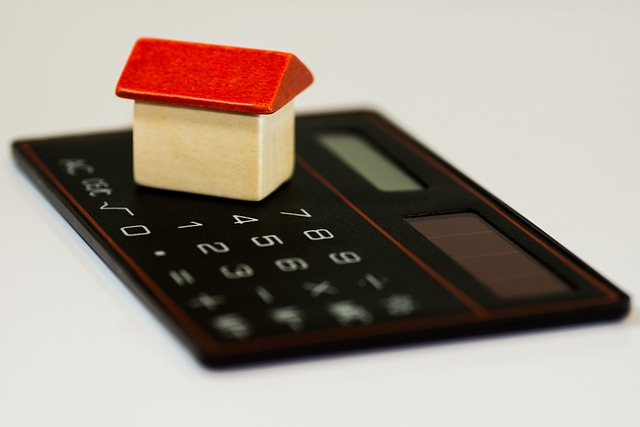Purchasing a home is one of the most significant investments many of us will ever make. With so much money on the line, it’s important to get it right. What should be a memorable experience can quickly turn into a regrettable mistake if certain mistakes aren’t avoided.
To help you get through the process of homebuying with confidence, we’ve compiled a list of mistakes to avoid when buying a house.
Let’s get into it.
Mistake #1 – Don’t Make Any New Credit Purchases

One of the most common mistakes for prospective homebuyers is making new credit purchases before finalizing their home purchase. This mistake involves taking on new debts, such as applying for a new credit card or financing a big-ticket item like a car, during the homebuying process.
Why is this a problem?
New credit inquiries and additional debts can negatively impact your credit score. This can have a severe impact on your ability to secure a good mortgage rate. In fact, it is also one of the common reasons why mortgage applications are also declined.
To avoid this mistake, stop yourself from making any new credit purchases from the moment you start thinking about buying a home until after you’ve closed the deal. It may be hard, but in the long run, it’ll be well worth it.
Ensuring your credit score remains strong increases your chances of obtaining a more attractive mortgage rate.
Mistake #2 – Delaying the Approval Process

Another common mistake many make in the home buying journey is delaying when it comes to seeking mortgage pre-approval. Delaying this can have significant repercussions.
Mortgage pre-approval is important because it provides you with a clear understanding of your budget and strengthens your position as a serious buyer in the eyes of sellers.
Waiting too long to start the approval process can result in missed opportunities and potential stress during your home search.
To avoid this mistake, start the pre-approval process early in your homebuying journey. This will involve gathering financial documents, contacting mortgage lenders, and completing the necessary applications. Many assume it will be a straightforward process, but unfortunately, there can be delays.
Ultimately, getting pre-approval first will ensure a smoother and more confident homebuying experience. It’s also one less thing to worry about when you’re trying to secure that dream property.
Mistake #3 – Not Shopping Around for Mortgage Rate Quotes

Finding a property is one thing, but the repayments will follow you around for years to come. So why not take the time to shop around? Unfortunately, many homebuyers fail to explore their options, and as a result, they miss out on potential savings that could add up to thousands of dollars over the life of the loan.
To avoid this costly mistake, take the time to reach out to multiple lenders and obtain mortgage rate quotes. Each mortgage lender may offer slightly different interest rates and terms. By comparing these offers, you can find the best deal that will ensure you aren’t overpaying for your mortgage.
In the long run, this effort can translate into substantial savings and increased financial stability throughout your homeownership journey. At the very least, whenever a monthly mortgage payment leaves your account, you’ll know that it was the best deal possible. So, don’t underestimate the importance of seeking multiple mortgage rate quotes.
Mistake #4 – Failing to Pay off Debts

Buying a house with a burden of outstanding debts can be a recipe for financial stress and potential roadblocks in your home buying journey. It’s a common mistake that people make when buying a house.
High levels of debt can affect your credit score and increase your debt-to-income ratio, which are some of the main factors lenders consider when assessing your mortgage application. Carrying substantial debts may result in a higher interest rate, limited loan options, or even rejection.
To avoid this, make an effort to pay off as much debt as possible before getting yourself into homeownership. Prioritize high-interest debts like credit card balances and personal loans. Reducing your debt not only improves your credit score but will make sure you have a much less stressful journey, especially when you’ll have fewer monthly payments leaving your account.
Mistake #5 – Not Checking Your Credit Report Regularly

Overlooking the importance of monitoring your credit report is a mistake that can have far-reaching consequences, especially when you’re gearing up to buy a home. Your credit report is a comprehensive record of your credit history and is responsible for determining your mortgage eligibility and interest rates.
Errors or inaccuracies in your credit report can lower your credit score and, subsequently, hinder your ability to secure a mortgage. Additionally, you may be unaware of any fraudulent activity or unauthorized accounts opened in your name if you’re not routinely reviewing your credit report.
To avoid this oversight, make it a habit to check your credit report regularly, ideally at least once a year, and especially before embarking on the homebuying process. Ensure that all information is accurate, and dispute any discrepancies straight away. There are services available that provide monthly reports straight to your email, which makes this mistake easier to avoid.
Mistake #6 – Ignoring a Home Inspection

Another mistake that homebuyers can make is skipping or ignoring the step of having a home inspection.
A home inspection is your opportunity to assess the condition of the property thoroughly. It helps identify any hidden issues or safety concerns that may not be visible during a casual viewing. By ignoring a home inspection, you risk purchasing a home with undisclosed flaws that could lead to significant financial and safety concerns down the road.
Let’s face it: properties are not cheap. The last thing you want to do is purchase a property and then have to fork out extra to fix those issues.
To avoid this potentially costly error, always prioritize a professional home inspection before finalizing your purchase agreement. A qualified inspector can provide you with an unbiased assessment of the property, giving you a clear understanding of its condition.
You can then negotiate repairs or adjustments with the seller, potentially saving you money and ensuring you make an informed decision about your investment.
Mistake #7 – Not Saving Enough Money

Purchasing a home involves more than just a down payment.
There are:
- Closing costs
- Property taxes
- Homeowners insurance premiums
- Maintenance expenses
- Unexpected repairs
Failing to save adequately can leave you financially vulnerable, struggling to cover these essential costs.
To avoid this, prioritize saving and budgeting for all homeownership-related expenses. Start by establishing a realistic savings plan that accounts for your down payment and closing costs.
Additionally, build an emergency fund to address unexpected repairs or financial setbacks that may appear after you’ve purchased your home.
Mistake #8 – Failing to Research the Neighborhood

One mistake that can really affect your homebuying experience is failing to thoroughly research the neighborhood in which you plan to purchase your new home. This can have a huge impact on your overall satisfaction and quality of life in your new residence.
The neighborhood you choose can greatly influence your daily life. Failing to research the neighborhood can lead to unpleasant surprises, such as discovering that it doesn’t meet your needs or expectations after moving in.
So make sure you research the neighborhood thoroughly. Don’t forget to consider issues like convenience, amenities, crime rates, and other factors that are important to you.
Mistake #9 – Emotional Decision-Making

Purchasing a home is a substantial financial investment, and you don’t want to make a decision that you’ll regret later.
Impulsive choices, such as buying a home beyond your budget or overlooking critical flaws because you’ve become attached to a property, are a recipe for disaster. These emotional decisions can result in financial stress and long-term regrets.
To avoid this, approach the homebuying process with a clear and rational mindset. Define your priorities and create a list of must-haves and deal-breakers in a home. Stick to your budget and resist the temptation to overspend because of the appeal or aesthetics of a particular property.
Mistake #10 -Buying Without Considering Affordability

This is similar to Mistake 9, but it needs its own section. Affordability should always be at the core of your decision making. Many make the mistake of relying on government loans such as USDA loans, FHA loans, or VA loans but fail to consider they may not be eligible.
Buying an overly expensive property can result in stretching your budget too thin, making mortgage payments a burden rather than a manageable expense. This will make owning a home a burden and will impact other factors of your life, too.
By buying within your means, you secure a more stable and enjoyable homeownership experience. You’ll have peace of mind knowing that you can comfortably cover all expenses related to your home, reducing financial stress and allowing you to focus on actually enjoying your new home.
Mistake #11 – Failing to Ensure Your Funds Are Accounted for

One of the overlooked mistakes in the home buying process is not ensuring that your funds, especially those that have been gifted or involve significant deposits, are thoroughly documented and accounted for.
Failing to do so can raise red flags during the mortgage approval process. Lenders need clear records of the source of your funds to comply with financial regulations and assess your ability to repay the loan.
To avoid this, ensure you maintain transparency and meticulous documentation of any funds that will be used for your home purchase. If you receive a gift from a family member, ensure you have the necessary documentation to prove the source of those funds. Additionally, avoid making a large deposit just before you purchase a property. While it may not seem suspicious to you, it will be for everybody else involved. So, if you have a habit of saving with cash, consider making a monthly payment into a savings account rather than waiting to deposit it all at once.
Bottom Line
The main reason that many do make these mistakes is lack of knowledge. If you’ve made it this far, rest assured you’re in a far greater position. Prepare ahead of time and ensure you’re prepared for the home buying process.
Good luck with buying your dream home!
We hope you enjoyed this article, and as always, feel free to browse the rest of our site for more informative articles and resources.
